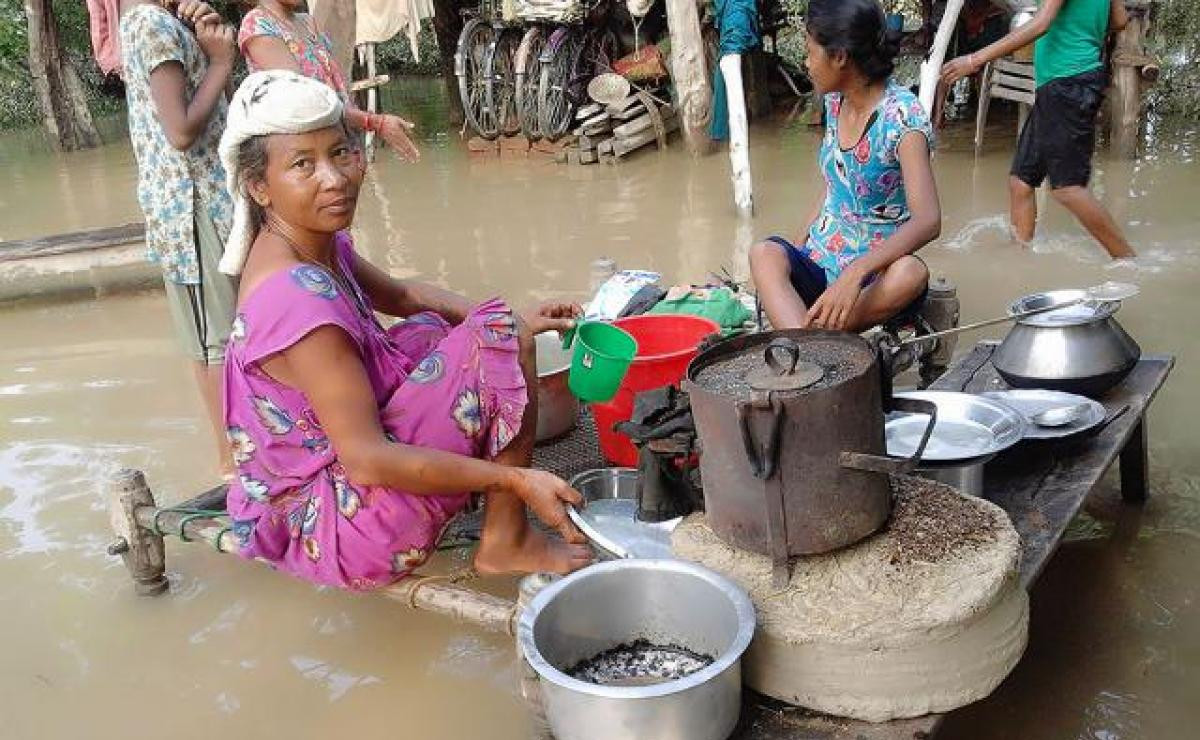Climate Change and SRHR
- Rakhsya Khadgi
The impacts of climate change have transcended beyond melting glaciers and rising sea levels; they have extended their reach to touch every facet of our lives, including our sexual and reproductive health and rights (SRHR). As our planet warms and weather patterns become increasingly erratic, the interconnectedness between climate change and SRHR becomes more evident. In this blog, we will explore how climate change affects SRHR, highlighting the urgency of addressing these intertwined challenges.
Climate change-induced disasters such as hurricanes, floods, and wildfires often result in the displacement of communities and the disruption of essential services, including healthcare. These disruptions can severely limit access to SRHR services, leaving individuals without access to contraceptives, prenatal care, and safe childbirth facilities. For example, the aftermath of Hurricane Maria in Puerto Rico in 2017 led to a significant decline in access to reproductive health services, exacerbating existing disparities in healthcare access. Rising temperatures can pose serious health risks to pregnant individuals. Heat stress during pregnancy can lead to complications and preterm births, endangering both the mother and the child. The 2019 heatwave in India saw a surge in heat-related illnesses among pregnant women, highlighting the vulnerability of maternal health in the face of climate change.
Climate change also disrupts agricultural systems, leading to food scarcity and compromised nutrition. Inadequate nutrition can result in adverse pregnancy outcomes, including low birth weight and developmental issues. For instance, in sub-Saharan Africa, changing rainfall patterns and prolonged droughts have affected crop yields and food security, ultimately affecting maternal and child health. As climate change renders certain regions uninhabitable due to extreme weather events or sea-level rise, communities are forced to migrate, often leading to overcrowded urban centres or refugee camps. In such environments, access to SRHR services becomes even more challenging, with increased risks of sexual violence, unwanted pregnancies, and spreading sexually transmitted infections.
Climate change-induced disruptions can exacerbate existing gender inequalities and increase the prevalence of gender-based violence. Displacement, resource scarcity, and changing family dynamics in the wake of disasters can heighten the risk of domestic violence, directly impacting the SRHR of individuals, particularly women and girls. Moreover, indigenous communities who possess traditional knowledge about plants and practices that support SRHR. However, climate change threatens these communities' traditional ways of life, endangering the transmission of vital knowledge that has been passed down through generations.
The intersection of climate change and SRHR is a complex web of challenges that requires urgent attention and action. As the world grapples with the consequences of a warming planet, it is essential to recognise the inextricable links between climate justice and reproductive justice. The impacts of climate change disproportionately affect marginalised communities, encouraging existing inequalities. To address these challenges, a holistic approach that integrates climate resilience, gender equality, and SRHR is needed.
As individuals, we have a role to play in advocating for policies that prioritize both environmental sustainability and SRHR. Supporting organisations that work at the nexus of these issues can make a tangible difference. Moreover, fostering a global conversation that acknowledges the interconnectedness of these challenges is crucial for driving policy changes and creating a more equitable and sustainable future for all. In conclusion, climate change is not just altering the physical landscape; it is reshaping the landscape of SRHR, calling us to action to safeguard the well-being and rights of individuals and communities worldwide.
